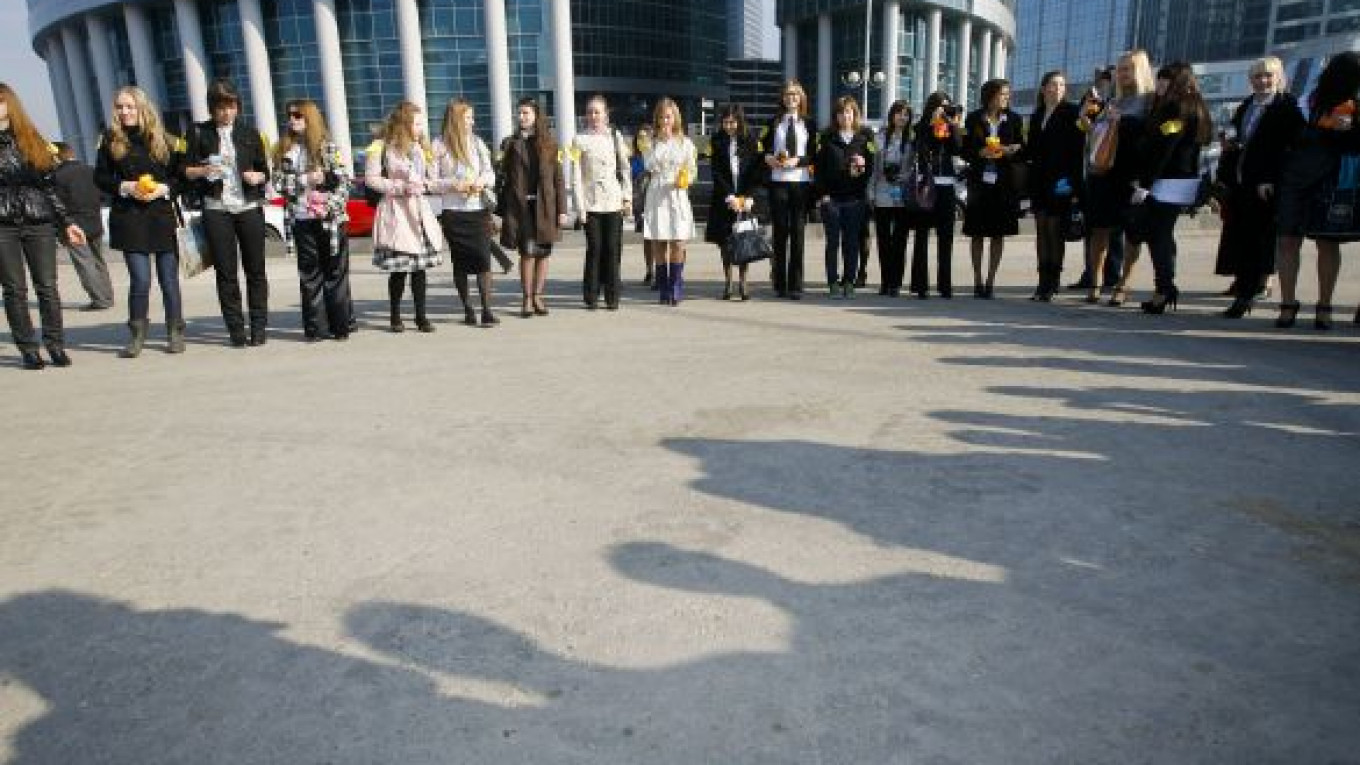Working women here may enjoy one of the more lengthy maternity leaves in the world, but labor experts caution that the three-year period is also a barrier to having women move up in rank or salary.
Women, particularly younger ones, are seen as less desirable employees because it is assumed they will take a lot of time off work as part of their maternity allowance, Yelena Gerasimova, director of the Center for Social and Labor Rights, said at a working women's forum on Friday.
"In the eyes of the employer, any employer, even a female employer, a woman remains a more fragile and less competitive item on the labor market," Gerasimova said.
About 67 percent of all people who turn to her center are women, and most of their questions are related to maternity leaves or work-life balance.
Russian law currently allows for 140 days of maternity leave that is fully paid by the company. Women can take up to three years to care for their newborn while still being guaranteed a job with their employer when they return. During this time the state provides them with social insurance benefits.
It is common practice here for employers to put gender and age requirements in their want ads. This helps them to weed out women who would need to be paid for their maternity leave, Gerasimova said. However, the government is now discussing a change to the Labor Code that would prohibit employment advertisements from placing these restrictions on applicants.
Although Russian businesses prefer to hire men, women make up 49 percent of the labor force in the country, according to a recent study by Ernst & Young.
But they are underrepresented in senior positions. The number of women in management posts has grown since 2008, according to a study by PricewaterhouseCoopers. In the past year alone, women made up 42 percent of all newly appointed managers, but the overall percentage of women in these posts is still small.
At the highest levels of corporate and even political life women remain underrepresented. They make up just 7 percent of board members at the 50 largest Russian public companies. In politics, Russia takes 84th place in terms of female representation, behind Zimbabwe and Honduras, according to the Inter-Parliamentary Union. The current State Duma has 14 percent female members.
"Right now, the stereotypes, the historical memory that public life belongs to men and private life to women … these stereotypes continue," said Olga Ovcharova, a humanities professor at the State Specialized Institute of Arts.
Women's salaries are also lagging. They earn just 60 percent of what men earn on average, said Nikolai Levichev, leader of the Just Russia party.
"There are a lot of successful women in Russia that have accomplished their goals in different sectors, but there are even more whose potential is still untapped," he said.
Related articles:
A Message from The Moscow Times:
Dear readers,
We are facing unprecedented challenges. Russia's Prosecutor General's Office has designated The Moscow Times as an "undesirable" organization, criminalizing our work and putting our staff at risk of prosecution. This follows our earlier unjust labeling as a "foreign agent."
These actions are direct attempts to silence independent journalism in Russia. The authorities claim our work "discredits the decisions of the Russian leadership." We see things differently: we strive to provide accurate, unbiased reporting on Russia.
We, the journalists of The Moscow Times, refuse to be silenced. But to continue our work, we need your help.
Your support, no matter how small, makes a world of difference. If you can, please support us monthly starting from just $2. It's quick to set up, and every contribution makes a significant impact.
By supporting The Moscow Times, you're defending open, independent journalism in the face of repression. Thank you for standing with us.
Remind me later.






